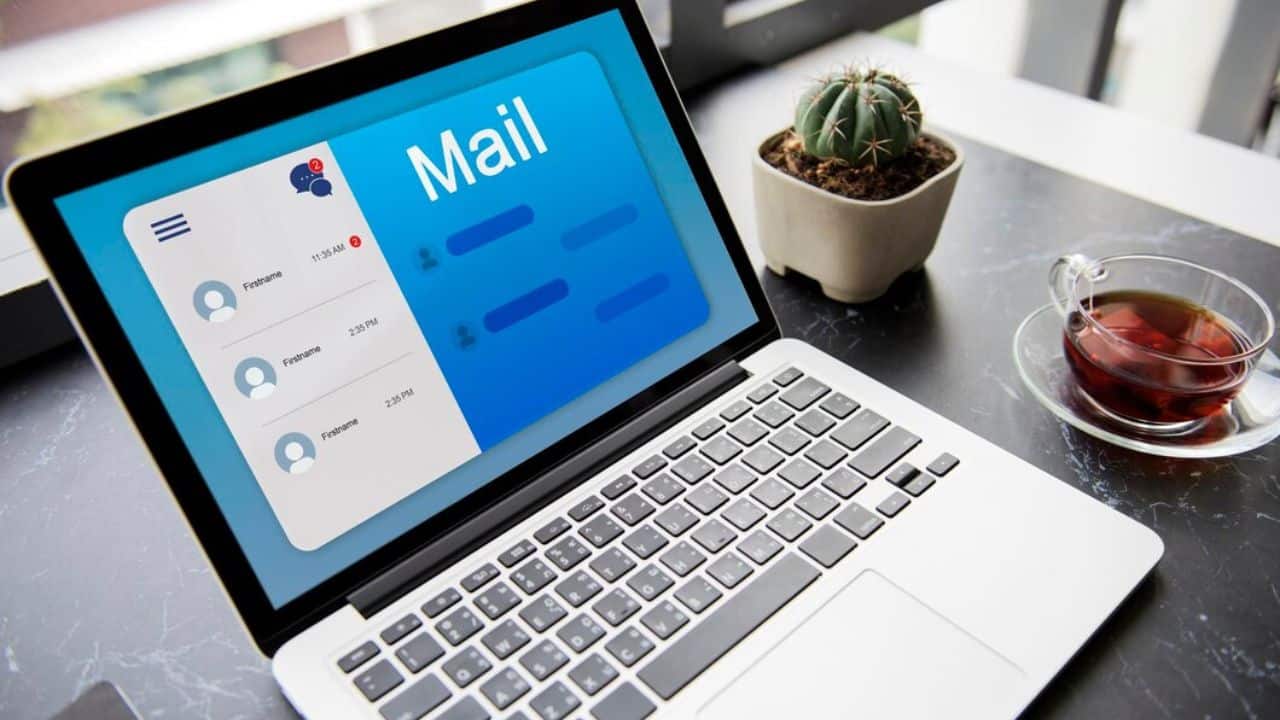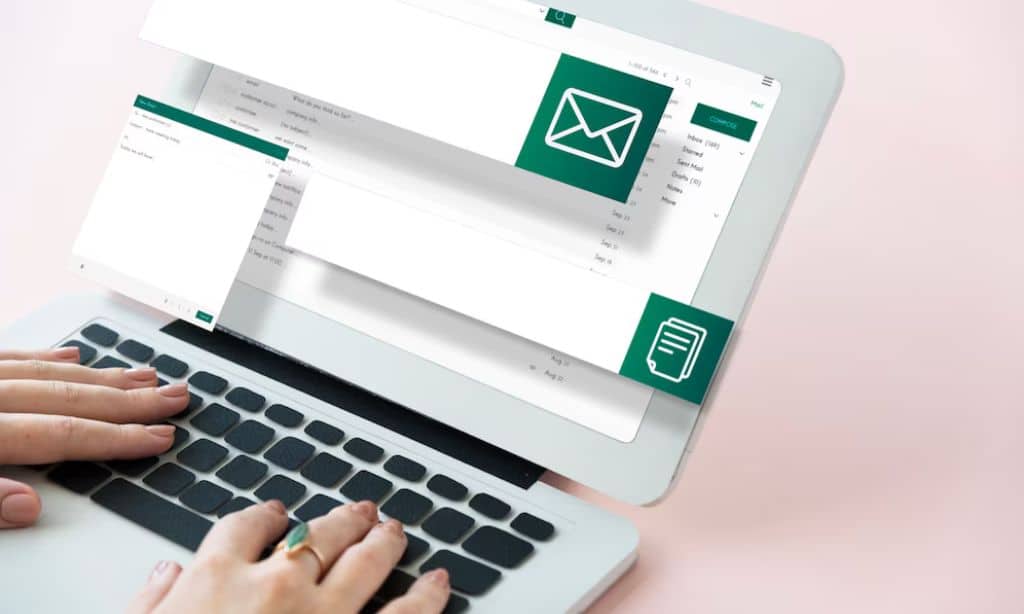Are you preparing to respond to a job offer email? Congratulations! Receiving a job offer is a significant achievement that underscores your skills, experience, and the positive impression you made during the interview process. However, before you celebrate, it’s crucial to thoughtfully craft your response. Your reply not only communicates your decision but also sets the foundation for your future relationship with the company. In this extensive guide, we’ll walk you through the essential steps to respond to a job offer email effectively, ensuring you make a professional and informed decision.
Understanding the Importance of Your Response
Responding to a job offer email is more than just a formality; it’s a critical step that can influence your career trajectory. Your response reflects your professionalism, attention to detail, and enthusiasm for the role. Additionally, it provides an opportunity to clarify any uncertainties regarding the offer, negotiate terms if necessary, and establish clear communication with your prospective employer. A well-crafted response can leave a lasting positive impression, regardless of whether you accept or decline the offer.
Key Elements of a Professional Job Offer Response
When replying to a job offer, it’s essential to include specific elements to ensure your response is clear, respectful, and professional. Here are the key components you should incorporate:
- Express Gratitude
- Clearly State Your Decision
- Seek Clarification if Needed
- Negotiate Terms if Necessary
- Reiterate Your Enthusiasm
- Proofread Your Email
- Maintain a Professional Tone
- Respond Promptly
- Include Any Requested Documents
- End on a Positive Note
Let’s delve into each of these elements in detail.
1. Express Gratitude
Begin your email by thanking the employer for the job offer. This initial expression of gratitude sets a positive and appreciative tone for your correspondence. It shows that you value the opportunity and respect the employer’s decision to consider you for the position.
Example:
Thank you for offering me the position of Marketing Manager at ABC Company. I am honored by the opportunity and excited about the possibility of contributing to your team.”
2. Clearly State Your Decision
Be direct and concise in communicating whether you accept or decline the offer. If you’re accepting, confirm the position and the proposed start date. If you’re declining, provide a polite and respectful refusal without delving into unnecessary details.
Accepting Example:
“I am pleased to accept the position of Marketing Manager and confirm my start date as May 1, 2024.”
Declining Example:
“After careful consideration, I have decided to decline the offer for the Marketing Manager position. This was a difficult decision, as I am impressed with ABC Company and the opportunities it presents.”
3. Seek Clarification if Needed
If there are aspects of the offer that are unclear or require further discussion, this is the appropriate time to ask questions. Common areas for clarification include salary details, benefits, job responsibilities, and start dates. Ensuring you have a clear understanding of the offer helps prevent future misunderstandings.
Example:
I have reviewed the offer and would like to discuss the details of the benefits package, specifically the health insurance options available.
4. Negotiate Terms if Necessary
If certain elements of the offer do not meet your expectations, such as salary or additional benefits, you can respectfully negotiate these terms. Approach negotiations with a positive attitude, emphasizing your enthusiasm for the role while outlining your requests. Providing clear reasoning for your negotiation points can facilitate a constructive dialogue.
Example:
“I am very excited about the Marketing Manager position at ABC Company. Based on my experience and the industry standards, I was hoping we could discuss the possibility of a higher base salary. Additionally, I would like to inquire about opportunities for professional development and training.
5. Reiterate Your Enthusiasm
Regardless of whether you’re accepting, declining, or negotiating, reaffirm your interest in the company and the position. This reinforces your professionalism and leaves the door open for future interactions, ensuring that your response is perceived positively.
Example:
I am genuinely excited about the opportunity to work with ABC Company and contribute to your innovative projects.
6. Proofread Your Email
Before sending your response, thoroughly proofread your email to eliminate any grammatical errors or typos. A well-written message demonstrates your attention to detail and professionalism. Consider reading your email aloud or using grammar-checking tools to catch any mistakes you might have missed.
Tips:
- Read your email aloud to catch any awkward phrasing.
- Use grammar-checking tools or ask a trusted colleague to review your draft.
7. Maintain a Professional Tone
Ensure that your language remains formal and respectful throughout the email. Avoid using slang, overly casual phrases, or emoticons, as these can undermine your professionalism. A professional tone reflects your seriousness about the role and respect for the employer.
Example:
I appreciate the time and effort your team has invested in the hiring process and look forward to potentially joining ABC Company.
8. Respond Promptly
Aim to respond to the job offer email within a reasonable timeframe, typically within a few days. Prompt responses demonstrate your seriousness about the offer and respect for the employer’s time. If you need more time to make a decision, communicate this clearly and provide a specific timeline for your response.
Example:
“Thank you for the offer. I would like to take a few days to consider this opportunity and will get back to you by [specific date].”
9. Include Any Requested Documents
If the employer has requested additional documents, such as signed contracts, identification, or references, ensure you attach these to your email. Double-check that all required materials are included to avoid any delays in the hiring process.
Example:
“Attached to this email are the signed offer letter and my identification documents as requested.”
10. End on a Positive Note
Conclude your email with a positive statement that reflects your excitement about the role or appreciation for the opportunity. This final touch leaves a favorable impression and reinforces your enthusiasm for the position.
Example:
“Thank you once again for this incredible opportunity. I look forward to the possibility of working together.”
Comprehensive Examples of Job Offer Responses
To further illustrate how to craft your response, here are detailed examples for different scenarios: accepting an offer, declining an offer, and negotiating terms.
Example 1: Accepting a Job Offer
Subject: Acceptance of Job Offer for Marketing Manager Position
Dear [Hiring Manager’s Name],
I hope this message finds you well.
Thank you for offering me the position of Marketing Manager at ABC Company. I am thrilled about the opportunity to join your team and contribute to the innovative projects that ABC Company is known for. After reviewing the offer, I am pleased to accept the position and confirm my start date as May 1, 2024.
I am confident that my skills and experience in digital marketing will be valuable assets to your team. Attached to this email are the signed offer letter and the requested identification documents.
Please let me know if there are any additional steps I need to complete before my start date. I look forward to working with you and the rest of the ABC Company team.
Thank you once again for this opportunity.
Best regards,
[Your Name]
[Your Contact Information]
Explanation:
- Subject Line: Clearly states the purpose of the email.
- Opening: Begins with a courteous greeting.
- Gratitude: Thanks the employer for the offer.
- Acceptance: Clearly accepts the position and confirms the start date.
- Confidence: Expresses confidence in contributing to the team.
- Attachments: Mentions the attached documents.
- Closing: Offers to assist further and expresses enthusiasm.
- Signature: Includes full contact information.
Example 2: Declining a Job Offer
Subject: Job Offer for Marketing Manager Position
Dear [Hiring Manager’s Name],
I hope this message finds you well.
Thank you for offering me the position of Marketing Manager at ABC Company. I sincerely appreciate the time and effort your team has invested in the interview process and in considering my application.
After careful consideration, I have decided to decline the offer. This was a difficult decision, as I am genuinely impressed with ABC Company and the exciting opportunities it presents. However, I have accepted another position that aligns more closely with my career goals and professional aspirations.
I hope we can stay in touch for potential future opportunities or collaborations. Thank you again for your understanding and for the opportunity to be considered for this role.
Best regards,
[Your Name]
[Your Contact Information]
Explanation:
- Subject Line: Indicates the email is regarding the job offer.
- Opening: Starts with a courteous greeting.
- Gratitude: Thanks the employer for the offer and their time.
- Decision: Clearly states the decision to decline the offer.
- Reason (Optional): Provides a brief reason for declining without going into unnecessary detail.
- Future Opportunities: Expresses a desire to stay connected.
- Closing: Offers thanks and understanding.
- Signature: Includes full contact information.
Example 3: Negotiating a Job Offer
Subject: Re: Job Offer – Marketing Manager Position Negotiation
Dear [Hiring Manager’s Name],
I hope this message finds you well.
Thank you for offering me the position of Marketing Manager at ABC Company. I am excited about the opportunity to join your team and contribute to the innovative projects at ABC Company. After carefully reviewing the offer, I would like to discuss the compensation package, specifically the base salary.
Based on my experience in digital marketing and the industry standards, I was expecting a salary in the range of $75,000 to $80,000. Additionally, I would like to inquire about the possibility of flexible working hours and professional development opportunities, such as attending industry conferences or obtaining relevant certifications.
I am confident that we can reach a mutually beneficial agreement and am enthusiastic about the potential to grow with ABC Company. Please let me know a convenient time to discuss these points further.
Thank you once again for this opportunity. I look forward to your response.
Best regards,
[Your Name]
[Your Contact Information]
Explanation:
- Subject Line: Clearly indicates the purpose of negotiation.
- Opening: Begins with a courteous greeting and expresses gratitude.
- Appreciation: Reiterates excitement about the role.
- Negotiation Points: Clearly states the desired changes in salary and other benefits.
- Reasoning: Provides justification for the negotiation.
- Confidence: Shows confidence in reaching an agreement.
- Closing: Thanks the employer and invites further discussion.
- Signature: Includes full contact information.
Additional Tips for Responding to a Job Offer Email
To ensure your response is as effective and professional as possible, consider the following additional tips:
Understand the Offer Thoroughly
Before responding, make sure you fully understand all aspects of the job offer, including salary, benefits, job responsibilities, and any other terms. Take the time to review the offer letter carefully and compare it with your expectations and market standards. Understanding the full scope of the offer allows you to make an informed decision and identify any areas that may require clarification or negotiation.
Take Your Time to Decide
While it’s important to respond promptly, don’t rush your decision. It’s acceptable to ask for a few days to consider the offer, especially if you need to evaluate multiple factors or discuss the offer with family or mentors. Taking the necessary time ensures that you make a well-considered decision that aligns with your career goals and personal circumstances.
Example:
“Thank you for the offer. I am very interested in the position and would like a few days to review the details. I will get back to you by [specific date].”
Be Honest and Respectful
Whether you’re accepting or declining the offer, honesty is key. If you’re declining, provide a truthful reason without being overly detailed or negative. Maintaining respect ensures you leave a positive impression, which is valuable for future opportunities. Even if the offer doesn’t align with your goals, expressing appreciation for the opportunity shows professionalism.
Keep the Communication Clear and Concise
Avoid unnecessary jargon or overly complex sentences. Clear and concise communication ensures that your message is easily understood and reduces the risk of misunderstandings. Being straightforward helps the employer quickly grasp your decision or requests, facilitating a smoother communication process.
Use a Professional Email Format
Ensure your email follows a professional format, including a clear subject line, appropriate greetings, organized body paragraphs, and a formal closing. This structure enhances readability and demonstrates your professionalism. A well-formatted email makes a positive impression and reflects your attention to detail.
Follow Up if Necessary
If you don’t receive a response within a reasonable timeframe after negotiating or seeking clarification, consider following up politely to ensure your email was received and to reiterate your interest. Following up shows initiative and continued interest in the position, keeping the lines of communication open.
Example:
“I wanted to follow up on my previous email regarding the job offer for the Marketing Manager position. Please let me know if you need any additional information from my side.”
Common Mistakes to Avoid
When responding to a job offer email, steer clear of these common pitfalls to maintain professionalism and improve your chances of a positive outcome:
- Delayed Response: Waiting too long to respond can convey disinterest or lack of professionalism.
- Being Vague: Avoid unclear language. Be specific about your decisions and any requests.
- Over-Negotiating: While negotiating is acceptable, excessive demands can be off-putting to employers.
- Using Informal Language: Maintain a formal tone and avoid slang or casual phrases.
- Not Proofreading: Grammatical errors or typos can undermine your professionalism.
- Accepting Without Clarification: Ensure you fully understand the offer before accepting to avoid future misunderstandings.
Leveraging Professional Networks and Resources
To enhance your response, consider leveraging professional networks and resources:
- Consult Mentors or Colleagues: Seek advice from trusted mentors or colleagues who have experience in job negotiations. Their insights can provide valuable perspectives and help you navigate the negotiation process effectively.
- Research Industry Standards: Use resources like Glassdoor, Payscale, or industry reports to understand typical salary ranges and benefits for your role. This information can support your negotiation points and ensure your requests are reasonable and aligned with market standards.
- Seek Legal Advice if Needed: For complex offers or contracts, consulting with a legal professional can provide clarity and ensure your interests are protected. Legal advice is especially important if the offer includes intricate terms or conditions that require thorough understanding.
The Role of EEAT in Crafting Your Response
Google’s EEAT (Experience, Expertise, Authority, Trust) guidelines emphasize the importance of credible, authoritative, and trustworthy content. While EEAT primarily applies to content creation for search engines, its principles can enhance your job offer response by ensuring clarity, professionalism, and reliability.
- Experience: Demonstrate your understanding of professional communication through a well-structured and thoughtful response. Reflecting your experience in crafting such communications adds to your credibility.
- Expertise: Showcase your knowledge of industry standards and negotiation practices. Referencing relevant standards or practices indicates your expertise and preparedness.
- Authority: Present yourself confidently, reinforcing your qualifications and suitability for the role. A confident tone underscores your authority and professionalism.
- Trust: Build trust by being honest, respectful, and clear in your communication. Transparent and respectful interactions foster trust between you and the employer.
By aligning your response with EEAT principles, you enhance the quality and effectiveness of your communication, reinforcing your professional image.
Takeaways
Responding to a job offer email is a pivotal moment in your career journey. It requires careful consideration, clear communication, and a professional approach. By following this comprehensive guide, you can craft a response that not only conveys your decision effectively but also strengthens your relationship with your prospective employer.
- Express Genuine Gratitude: Show appreciation for the opportunity.
- Clearly State Your Decision: Whether accepting, declining, or negotiating, be clear and direct.
- Seek Clarification: Ensure you understand all aspects of the offer.
- Negotiate Respectfully: Align the offer with your career goals without overstepping.
- Maintain a Professional Tone: Use formal language and structure.
- Proofread Your Email: Eliminate errors to showcase attention to detail.
- Respond Promptly: Respect the employer’s timeline and show enthusiasm.
- Include Requested Documents: Ensure all necessary paperwork is submitted.
- End on a Positive Note: Leave a favorable impression for future interactions.
Approach your response thoughtfully and strategically, ensuring it reflects your professionalism and enthusiasm. This approach will not only help you secure the best possible outcome but also set the stage for a successful and rewarding career with your new employer.






































